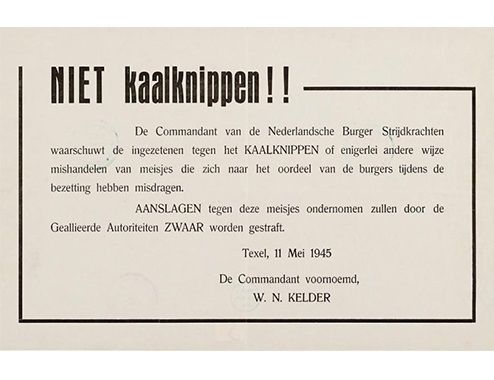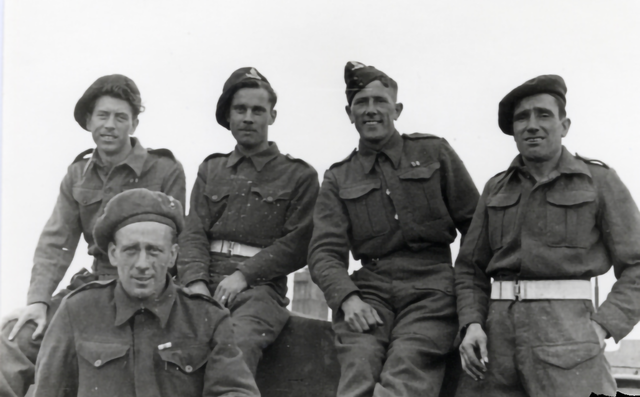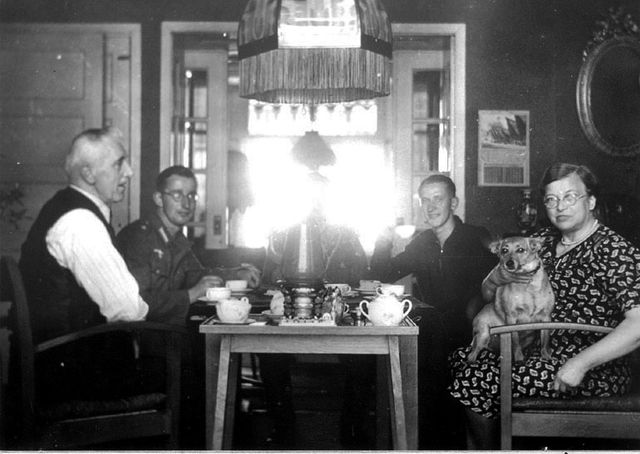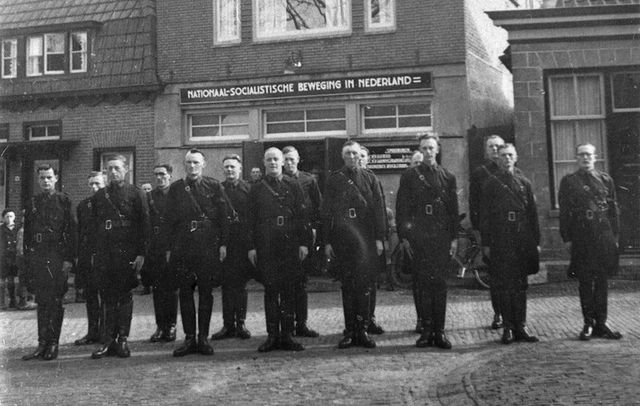Apart from some minor incidents, nothing much happened on the islands that resembled a hostile war situation. And sometimes affectionate and even passionate relationships began between occupiers and islanders. Several German soldiers had relationships with Dutch women. This also happened in other places in the Netherlands, but on the Wadden islands - where everyone knew everyone - these things happened openly for everyone to see, whether they were pro-German or anti-German.
This caused dilemmas not only for the island residents but also for the German soldiers. The Wehrmacht had published guidelines for relationships with women in occupied areas: Der deutsche Soldat und die Frau aus fremden Volkstum. Richthefte des Oberkommandos der Wehrmacht, Heft 1, 1943. These clearly stated that contact with women in occupied areas should be avoided. It only distracts from the military tasks. But German soldiers are also only human. Therefore, relationships with women of ‘Germanic populations’ such as Danes, Norwegians or Dutch were 'allowed, up to a point.
In rare cases, marriage between a German soldier and a woman from an occupied area was even allowed, if ‘both her Aryan and her Germanic descent are confirmed’. These were exceptions, though. A German soldier really only had one option if he wanted to get married: a girl of German descent. The brochure also warned about women who are working with the enemy and trying to get strategic information from the soldiers. But even more serious were the warnings about the nefarious consequences of mixed marriages, resulting in the non-German partner and even the children turning against Germany.
Of course, not all German soldiers stationed abroad adhered to the Wehrmacht’s guidelines. In many places, Germans had both short and long-term relationships with Dutch women. There was not much military activity in the Netherlands so there was ample time for recreation, especially on the islands. Kurt Schröder, who was Inselkommandant of Ameland between 1941 and 1944, was amorously involved with a female resident. And he was not the only one. Sometimes these relationships led to children, who then grew up without their father after the war. But on the islands, these children were widely accepted.

Some people were also happy when the Wehrmacht arrived. NSB members and like-minded people now had some support. Some women from those ranks also started relationships with German military men.
And the German was soon a common sight in the streets of Den Helder. Some girls soon began to fraternise with the fair-haired boys, whom they assumed couldn’t be all that bad. After all, these were well-dressed men, much better-looking than the soldiers in the Dutch army, who looked like chubby peasants. And the German soldiers could spin tales of the many countries they had visited and the countless more they would conquer. Many a German soldier ignited the flame of romance in the heart of a Heldersch resident’s daughter, and she didn’t even realise that she was committing betrayal (...).
(Anthony van Kampen in: De burgers van Den Helder, 1946)
The port city of Den Helder already had quite a large number of prostitutes before the war. With the Dutch sailors gone, they were looking for new johns. German soldiers were welcome of course, but some also chose to follow their former customers who had fled to the surrounding villages after the first heavy bombings. The mayor of Anna Paulowna complained about this to his colleague in Den Helder.


